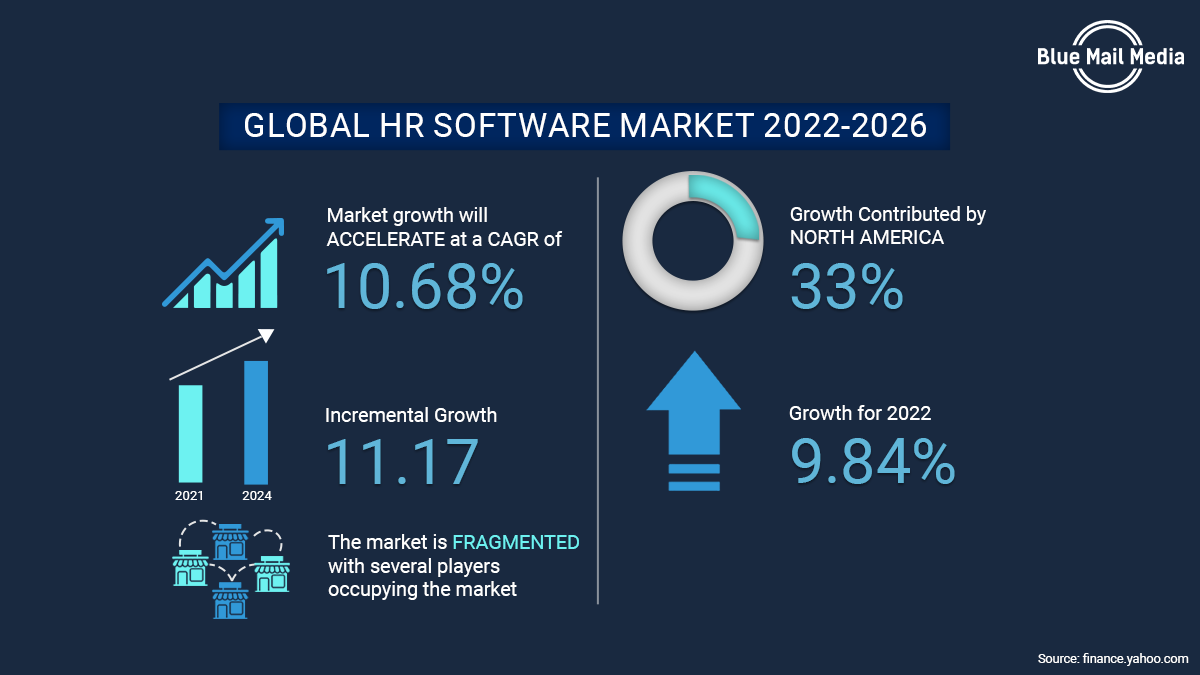HR tech has been booming since the last decade and has recently seen a staggering shift in adoption globally. In fact, almost 58% of organizations rely on HR tech for recruitment.
The HR tech market is currently valued at USD 23.98 Billion and is set to grow at an astounding CAGR of 7.5% through to 2029. However, the market competition also increases with the constantly growing need for HR tech and services. Positioning yourself perfectly in the market and ahead of competitors will get you the necessary conversions.
Furthermore, the current state of technology also poses quite a few challenges, like lesser flexibility, likely culture changes, disconnection with staff, and so on. You must now find a way to market your service creatively enough to work around these pain points.
The employees are crucial for the longevity of any business. However, HR teams frequently struggle to sell people-focused initiatives to executives, who are more concerned with earnings and losses than with the ethereal ideals of employee pleasure and workplace happiness.
Unfortunately, many corporate leaders equate human resources with payroll, recruiting, compliance difficulties, firing, and so on, rather than as a source of revolutionary ideas that boost profitability.
So, the question of the hour is, “How to sell HR services?” Well, Read on to find out!
Top Tips to Keep in Mind to Market HR Services
Here are the top tips and tricks you must keep in mind should you plan on selling your human resource services:
1. Showcase the Prospect their Own Needs
One of the most crucial steps in selling HR solutions or services is to showcase the prospect their need for the service in the current state of their technology and service stack. Prepare to demonstrate to a potential client the fundamental requirements of any organization, regardless of size.
This could begin with a discussion of the significance of a detailed organizational chart, replete with all the various job descriptions and titles, in order to maximize productivity and guide expansion.
Try and convey to them the complexities of staff hiring, which necessitates procedures such as discovering and interviewing individuals, vetting them, and presenting an offer. In fact, a recent survey concluded that 51% of organizations consider recruiting their primary concern.
Moreover, discuss legal concerns affecting employers as well as the necessity for compliance checks. Make them aware of all the low-cost programs available and how they can streamline recruitment and retention while bringing down payroll costs. Also, make sure you research the organization well and tie your offerings to their individual pain points.
2. Leverage Testimonials
Inform potential clients about how you’ve assisted other businesses in lowering labor expenses, developing benefits programs, bringing down attrition, developing training and development initiatives, streamlining payroll and on-boarding procedures, and so on.
Use real-life client case studies to demonstrate actual results. Provide testimonials from previous clients and offer to provide references to build credibility.
3. Always Maintain a Link to Company Goals
Once you have pointed out the various gaps in the prospect’s current HR department, you need to place yourself in a position where they believe you can further aid them in achieving their company goals.
For an HR project to be successful, it must directly link to the company’s business goals. For instance, if you want to garner backing for an employee satisfaction project, avoid discussing the need to increase happiness. Instead, inform them of how disgruntled employees can result in high turnover costs and lost corporate productivity.
This is just an example for you to gauge all the changes that need to be made in your current marketing campaign to be able to sell HR services better.
4. Offer Consultations
Offer free meetings with prospective clients to evaluate their present HR procedures and policies to get off on a good note. This will provide you with a gold mine of organizational information, allowing you to build a complete proposal that includes particular services and costs for each.
Rather than spending the majority of your time promoting your credentials, focus on asking questions about the client’s business. Get them to talk about their organization, and you can lead from there. Only sell yourself after the client realizes that they require assistance.
5. Look at the Situation from a Decision Maker’s Point of View
Business leaders and key decision-makers think more along the lines of human capital. And it is justified as human capital is generally the most expensive line item in the overall organizational budget.
So, when you try selling HR solutions to business leaders, explain the issue to them through their own perspective. Key executives of enterprise-level organizations prioritize objective achievement, investor goals, profitability, and, in some situations, enhancing shareholder value.
However, for small business owners, you need to come up with tailored solutions to suit their business models through your HR software so that you can gain their maximum attention. Implying a tailored and custom strategy in both scenarios will give you a better chance to convert prospects into permanent clients for your business.
6. Keep Away from HR Jargon
When C-level executives can understand how employee-focused projects can contribute to company growth and success, they will support them. This ties into the previous point, where an HR solutions sales rep needs to level with the decision-maker in question and carry the conversation forward.
Company leadership doesn’t always understand HR jargon, and they won’t attempt to understand it either. Here are some particular terms you should stay away from:
- Enrichment: Enrichment is the result of employee satisfaction. Increased employee satisfaction is definitely a worthwhile goal, but it isn’t directly related to the company’s objective.
- Professional Development: Decision-makers and professionals that invest in professional development for their staff often consider how those staff members can utilize those talents to secure jobs at other organizations.
- Engagement: The enthusiasm employees have toward their jobs and workplace is referred to as engagement. Although it’s a crucial component of employee retention, your business case should be focused on something other than it.
7. Know and Understand Your Target Audience Well
Every organization in your target audience pool will be different, meaning they will have different likes and dislikes, significantly impacting how you communicate with them.
Spend some time getting to know the personalities and communication preferences of the audience for your presentation. The communication preference of different business leaders will vary. So mold your approach accordingly, as it will maximize your opportunity to directly market your HR product to the key top-level decision-makers of such organizations.
While some leaders prefer facts, others just want specifics. Refine your presentation accordingly, and bring in that conversion.
Wrapping Up
The current HR market holds a lot of competition, and setting your organization and your offered services apart, is the only way to bring home those valuable conversions. Make a compelling case, and keep it short.
You stand a good chance of success if you clearly articulate your HR services pitch to upper management and immediately link it with your company’s goals. In the process, you will position yourself as an important contributor to the company’s strategy.
Keep the above pointers in mind, and you can successfully market HR services across organizations of all sizes, all the way from SMEs to MNCs! Follow these simple tenets while selling your human resources services, and you can easily bring in all the conversions you wish for!




